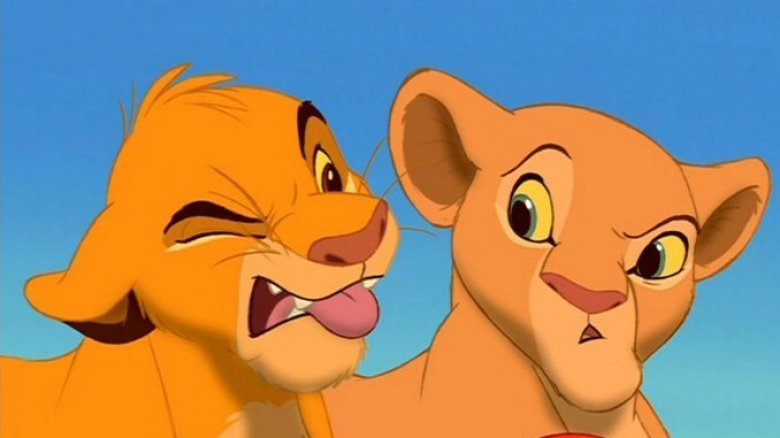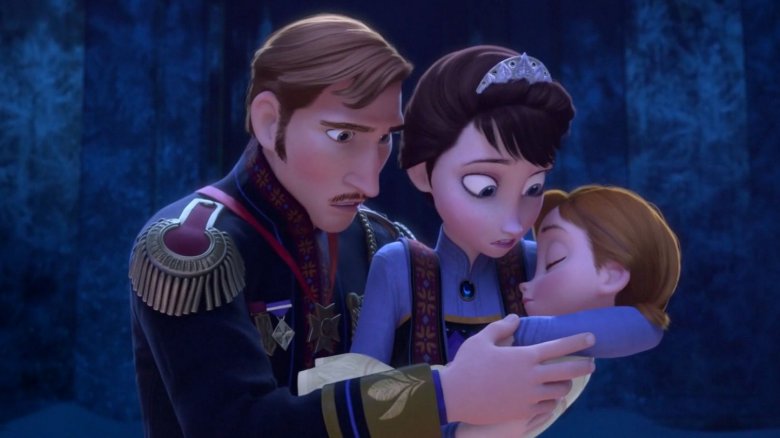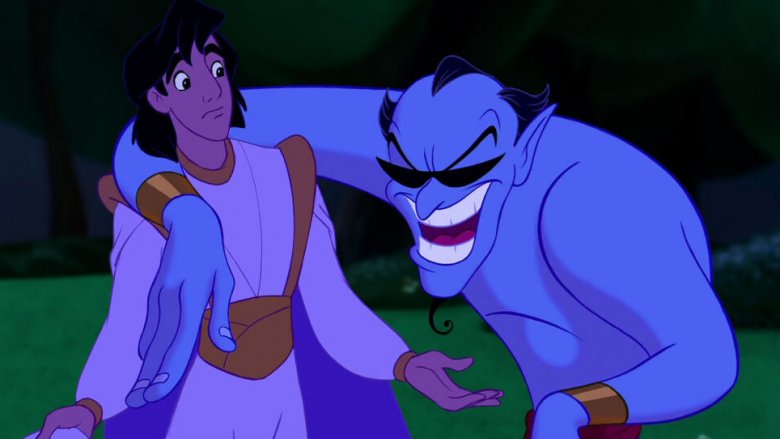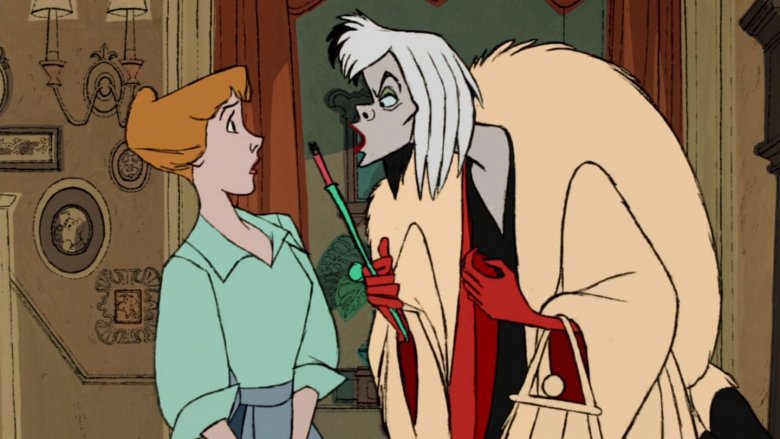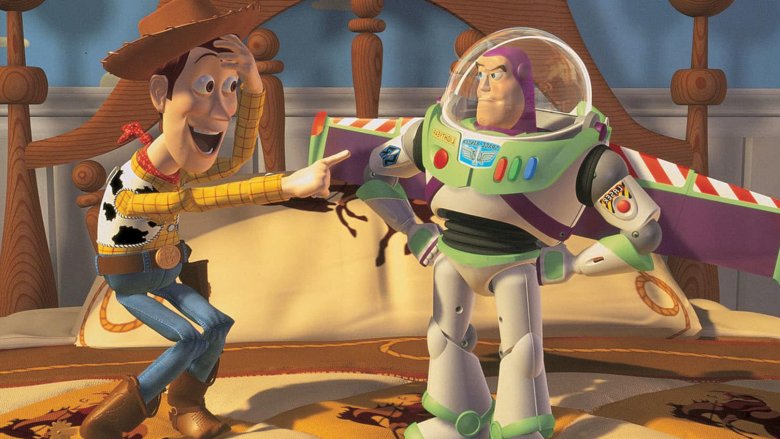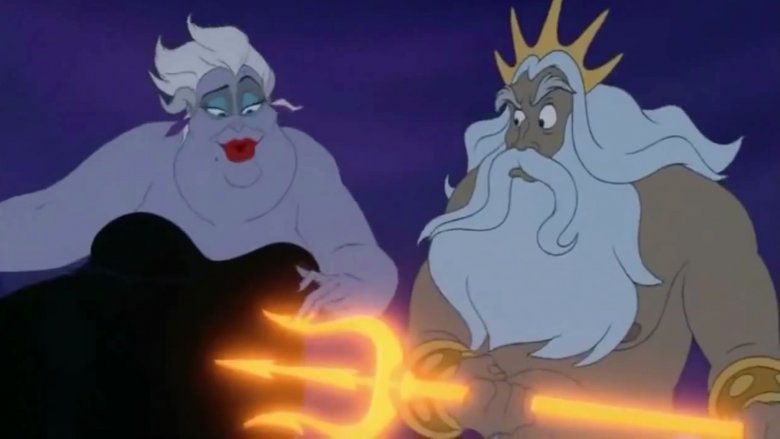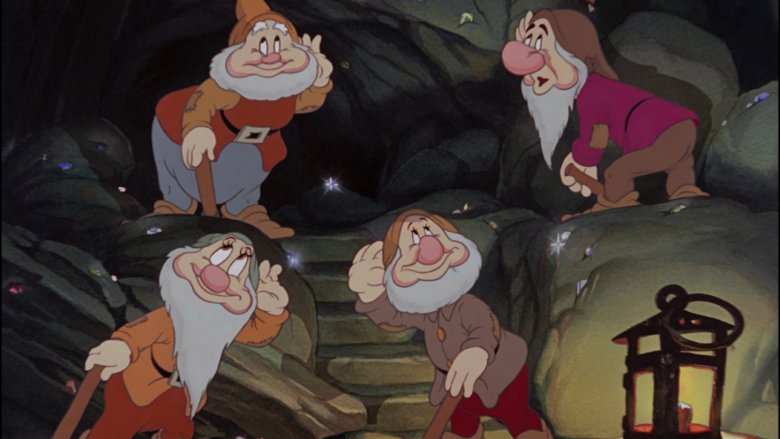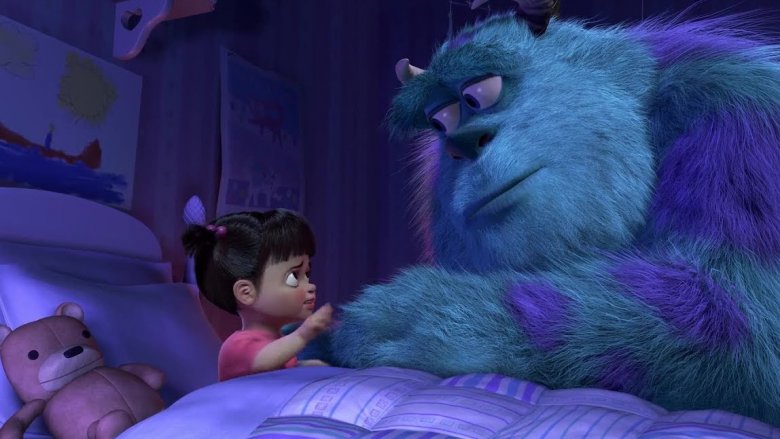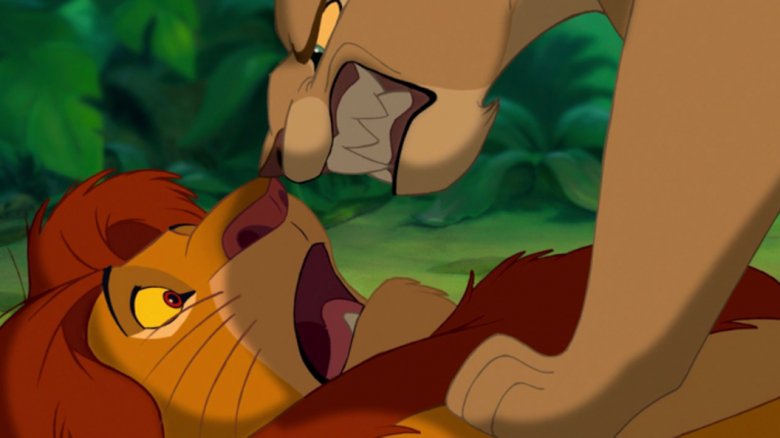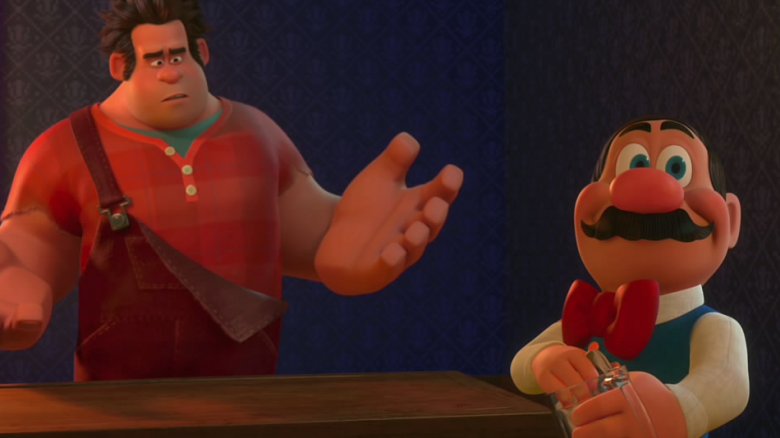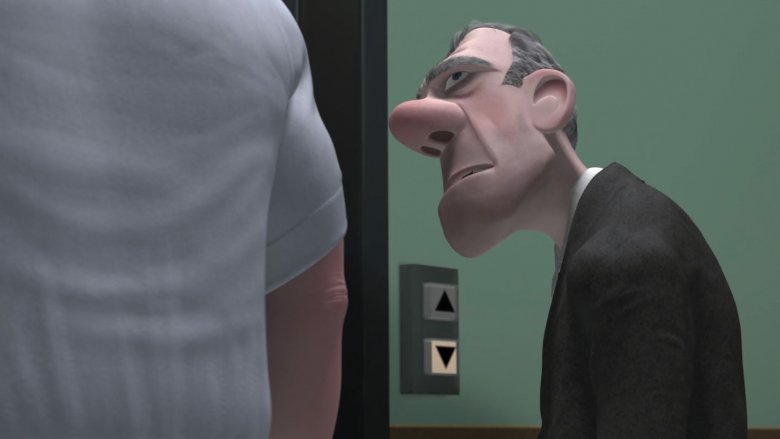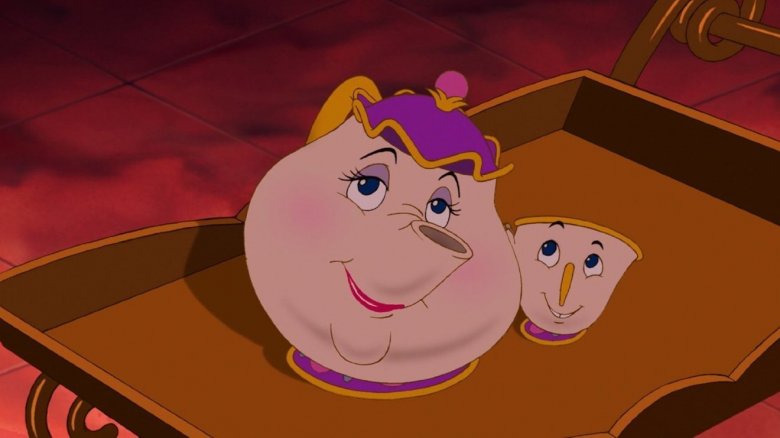Questions That Disney Movies Never Answer
Disney movies are designed to be rewatched over and over again, and if you're a kid (or a kid at heart), then you've probably seen your favorite Disney classics at least a dozen times each.
There's so much to love about Disney films. They're highly imaginative, often taking place in strange magical settings. They're expertly crafted by the best storytellers in the business, with tremendously efficient pacing and structure. They're also typically appropriate for all ages, without too much stuff that is going to prompt an uncomfortable conversation once the movie is over.
However, even more than most other movies, when you really dig into Disney films, they often end with a few dangling and intriguing questions that are never fully answered. Their highly imaginative settings sometimes lead to mysteries about the underlying rules of how their magical elements function. Their brisk and efficient storytelling means that certain elements of a character's backstory are never explained. Their all-ages rating means that the darker implications of certain plot developments are often glossed over.
Then again, maybe we just notice these weird gaps in Disney movies more than we do in other films because we've watched them so much more. Regardless, if you're anything like us, you've probably noticed some of these hanging plot threads, setting inconsistencies, or inexplicable character motivations that we just can't stop thinking about. And if you haven't noticed them before, you will now!
What happened to Anna and Elsa's parents?
Disney parents have it rough. Nearly all Disney protagonists are missing at least one biological parent. So when Frozen begins with Anna and Elsa having a mom and dad who are alive and well, you might find yourself asking, "What kind of Disney movie is this, anyway?"
Sure enough, about ten minutes into the movie, Elsa and Anna's parents leave on a trip across the ocean, their ship hits stormy waters, and they are never heard from again. You'd think that would be the end of things, but the internet has other ideas. What really happened to the king and queen has become a surprisingly rich vein for wild fan speculation.
Without a doubt, our favorite theory is that they washed up on the shores of another Disney movie. This other film starts with a shipwreck, after which a man, a woman, and their newborn son find themselves stranded on an uninhabited region of African jungle. Shortly after, however, the woman and her husband get killed by a leopard. Their child, perhaps Anna and Elsa's brother, grows up to become... Tarzan.
Despite the fact that co-director Chris Buck encouraged this bit of headcanon, if you start poking holes, the theory doesn't really work. The most glaring problem is that Tarzan takes place about fifty years after Frozen, but it's still a delightful "what if" to think about. Whatever the real answer is, we might learn it when the sequel hits theaters, because songwriter Kristen Anderson-Lopez recently confirmed that after Frozen 2, we will "know the parents a lot better."
Can the Genie choose not to grant a wish?
After the Genie is first released from the lamp, he tells Aladdin that he will grant any three wishes Aladdin wants, with three limitations: he can't make people fall in love, he can't kill anyone, and he can't resurrect the dead. However, after that last point, he goes on to say, "It's not a pretty picture. I don't like doing it." Does this line imply that Genie could break the rules if he wanted, and he just chooses not to grant certain wishes?
There's some evidence later in the film that the Genie has a lot more wiggle room than he is letting on. Aladdin's first wish is to be a prince, but arguably, the Genie never grants this wish at all. Aladdin doesn't get a kingdom to rule. His "Prince Ali" shtick is merely a ruse, and when that ruse is discovered, Aladdin is told that he still can't marry Jasmine because he "isn't a prince." So what does Aladdin spend his wish on, anyway? When Jafar wishes to be Sultan, he actually gets to rule Agrabah, but all Aladdin gets is a parade.
At one point, the Genie tells Aladdin that he can't save Aladdin's life unless Aladdin uses a wish, but at another point, Al tricks the genie into granting a wish for free, because he never technically uses the words "I wish," implying that the Genie can use his magic even if those words are never spoken. We never learn for certain how much flexibility the Genie has in wish granting, but those three rules certainly aren't the whole story.
Why are Anita and Cruella friends?
There's a seemingly vital question at the heart of 101 Dalmatians that the film doesn't ever fully answer. Why is Cruella de Vil hanging around with Roger and Anita to begin with? If you have a vague recollection that maybe Cruella was Anita's boss or something, you're wrong. In the 1996 live-action remake, Anita is a fashion designer and Cruella is her boss, but in the original 1961 film, Cruella is just Anita's old friend from when they were "schoolmates."
Forgetting for a moment that Cruella looks two full decades older than Anita, they seem to hate everything about each other, so what is either of them getting out of this friendship? One advantage of living in the pre-Facebook era of the '60s was that, once you got out of school, you never had to see your weird old classmates again. Why is Cruella still popping in for tea?
It's the least believable aspect of the movie, and this is a world where the seemingly unemployed Anita and barely-employed Roger can afford not only 101 dogs, but also full-time housekeeper.
Anita's life seems like the result of a weird "would you rather" game come to life. On the one hand, you will have a hundred dogs and never have to worry about money again, but on the other hand, that one person you hated most from high school will be hanging around your house all the time, and you can never ever get rid of them.
If Buzz doesn't think he's a toy, why does he act like one?
When Buzz Lightyear first arrives in Andy's room, there's something different about him. Unlike the other toys, who are happy with their roles as Andy's playthings, Buzz doesn't think of himself as a toy at all. He thinks he's the real Buzz Lightyear, stranded on an alien planet after crashing his "spaceship," which is actually just the box he came in.
For most of the movie, this is handled pretty consistently. For instance, Buzz doesn't want to open his helmet, in case the atmosphere is toxic. He thinks he has a real laser gun in his arm. Most dangerously of all, he believes he can fly.
However, if Buzz really believes that he's a Space Ranger, why does he freeze when humans are around? You'd think it would become clear to Buzz pretty quickly that Andy isn't dangerous, so why not make contact with this friendly giant to get help fixing his spaceship?
The only explanation that we can think of is that, from the very beginning, somewhere in his tiny plastic chest, Buzz knows the truth. He feels an instinctual need to freeze around humans, but can't understand why he's doing it, and perhaps even makes excuses for it later. It's a shame that the movie never explores this angle, because we would have loved to see Buzz deal with the cognitive dissonance of not believing he is a toy, while on another level not being able to resist behaving like one.
Why does Ursula hate Triton?
You might think that Ursula is a relatively straightforward villain. She hates Triton because she wants to rule the ocean, and she wants to rule the ocean because she's evil, right? But one throwaway line hints that there might be more going on with Ursula than you'd initially think. Ursula says to herself, "We had fantastical feasts when I lived in the palace." Hold the phone. Ursula used to live in the palace?
As revealed by the behind-the-scenes documentary "Treasures Untold," this line is actually a remnant from an earlier version of the story, in which Ursula was Triton's sister. In the final film, we don't get any confirmation of their relationship, but Triton and Ursula not being related certainly gels better with the direct-to-video sequel, The Little Mermaid II: Return to the Sea. That movie introduces Ursula's sister, Morgana, who is also part octopus, and no mention is made in that film of either sister being related to Triton.
The Broadway adaptation of The Little Mermaid opts to take things in a different direction. The play resurrects the idea that Ursula is Triton's sister, who was exiled for using dark magic and for killing those who got between her and the throne. Even if we accept this as canon, there are still plenty of tantalizing threads left hanging. How did Ursula learn dark magic? Why is she the only octopus-person in a kingdom of fish-people? Perhaps more so than any other Disney villain, Ursula seems deserving of a Wicked-style prequel from her perspective.
What do the dwarfs do with all the diamonds they are mining?
Snow White and the Seven Dwarfs may contain a magic mirror, a shapeshifting queen, and a princesses who talks to animals, but the most fantastical thing in this setting has to be the strange work ethic of the seven dwarfs.
In "Heigh Ho," the dwarfs sing that they work in the mine "from early morn' till night." They "dig up diamonds by the score, a thousand rubies, sometimes more." Given this, you'd imagine they'd be pretty wealthy, and yet they are practically living on top of each other in a single shoddy cabin.
Maybe the dwarfs are just working for the joy of work. During the song, they admit, "We don't know what we dig 'em for." At the end of the work day, the dwarfs just toss their gems into a vault, lock the door, and then hang the key on a hook... right outside the door. This could imply that they just don't care.
Alternatively, the dwarfs simply might not know that diamonds are valuable. Their house is a mess, and there's an entire song about how they don't know how to clean themselves, so it's safe to assume that no one ever taught them about finances. Or maybe there's some unseen boss who tricked the dwarfs into this arrangement. Someone gave them their shoddy house in exchange for working in the mine all day for free. If so, our money's on Anita from 101 Dalmatians. It would finally explain why she and Roger don't have jobs.
What do Boo's parents think happened to her?
As presented in the film, the plot of Monsters, Inc. is mostly comedy. A little girl from the human world — nicknamed Boo — ends up in the fantastical city of Monstropolis, becoming the pet of two monsters named Mike and Sully, who are more afraid of her than she is of them. This seems like a recipe for family-friendly fish out of water antics, and that's mostly what we get, from the perspective of our main characters.
However, if the viewpoint had stayed in the human world, the film would have quickly switched genres once Boo's parents discovered she was missing. There is potentially an entire second movie here, a crime thriller complete with crying parents, police reports, search parties, and possibly even nationwide media coverage during the day or two that Boo was in Monstropolis.
Perhaps even more interesting, however, would be what happens next. After Boo is mysteriously returned to her bedroom in the middle of the night, what would be the reaction of her family and their community? Would Boo's family now be accused of faking the whole thing? Would her parents be able to return to life as it once was, or would they suspect the truth about the monsters that live in the closet?
At the end of Monsters, Inc., when Sully returns to Boo's room so that he can visit her again, is Boo's mom waiting just off-screen, holding a net and ready to pounce? Now that's a sequel we'd like to see.
Are Simba and Nala related?
We all know that Simba and Nala's romance seems super adorable, so if you want to keep thinking about it that way, maybe skip this one, because things are about to get real uncomfortable real quick.
Okay, are all the normal people gone? Just the weirdos left? Good, because here's a news flash: Simba and Nala are probably related.
Let's start with their mothers, Sarabi and Sarafina. For real lions, all the lionesses in a pride are typically related. If that's the case here, then Simba and Nala are probably at least second cousins. It gets even worse when you think about their dads. Again, in a real lion pride, all the cubs are typically offspring of the same two or three males. In The Lion King, there are two males: brothers Mufasa and Scar. Cousins is the best they can hope for. They could be as close as half-siblings. This could bring an entire new creepy subtext to the scene in which Simba says to Nala, "You're starting to sound like my father."
Yeah, it's possible that Nala's dad was some unnamed male who died or something, and maybe Sarafina and Sarabi aren't related either, but that would make this pride quite the zoological anomaly. Maybe lions weren't a great choice of animal for a story about kingly succession, as real adult male lions doing their duty don't succeed their fathers, but rather leave their prides altogether, partially to avoid this exact situation.
What happens if there's a power outage at the arcade?
Wreck-It Ralph takes place in the hidden world behind the screens of an arcade. Despite the fact that this film often comedic, the underlying mechanics of the setting are never treated lightly. There is no "don't think about it too hard" here. This movie runs on hard and fast rules, so let's nitpick!
When the arcade closes at night, many characters hang out in the power strip, an area known as "Game Central Station." Additionally, some Game Central Station residents are refugees from old games, who fled to the power strip when they learned that their games were being disconnected for good. Leaving your game can be dangerous though, because if a character dies in their own game, they regenerate, but if they die outside their game, or if they are in another game when that game is unplugged, they die for real.
Getting unplugged, however, isn't the only way that a device can lose power. If there was ever a power outage at the arcade, all the characters who wandered from their home game, and all the gameless characters who no longer have a "home game," would be erased.
Are we supposed to believe that in the multiple decades that Litwak's Arcade has been open, this neighborhood's never had a blackout? That one power strip has never been disconnected or replaced? Poor Q*Bert should be long dead by now. Unless the whole arcade is off the grid, running on a generator. Who knows, maybe Litwak is a doomsday prepper.
Why didn't the government warn the Parrs about Syndrome?
The setting of The Incredibles used to be a world of superheroes, until the government forced them all to retire. Now they are monitored by the National Supers Agency, which both makes sure that they aren't using their powers in public, and also helps relocate them if their identities are ever exposed.
One hero who has gotten to know the Agency quite well is Bob Parr, formerly known as Mr. Incredible. Because he can't resist fighting the occasional crime now and again, Parr and his family have been relocated and given new identities by the Agency multiple times. Eventually, Parr is given an opportunity to feel like a hero again when a mysterious billionaire hires him to disable his renegade robot. It later turns out that this robot isn't a renegade at all. Parr's mysterious boss built it, and others like it, to kill superheroes, and it's killed off 15 other retired heroes before him.
Wait, quick question: if the only job of the Bureau of Supers is to monitor retired superheroes, did nobody notice that 15 of them had gone missing? The Parrs see Agent Dicker all the time, shouldn't he have maybe given them a heads-up that retired heroes were vanishing at an alarming rate? Then again, given how frequently Bob's has to be relocated, maybe someone in the Agency figured that him mysteriously disappearing wouldn't be the end of the world. At least it would cut down on the amount of paperwork they had to do.
Okay, but seriously, we have so many questions about Beauty and the Beast
We could spend the rest of this article just asking questions about Beauty and the Beast, so you know what? Let's do that.
Why does no one in Belle's town know about the Beast's castle? Wasn't he just their ruler a few years ago? Is everything in the castle a former person? We see the spoons dancing. Did they used to be people? If so, did the castle not have spoons before?
The Beast is 20 years old (a fact that's central to the plot), and Lumiere says during "Be Our Guest" that they've been cursed for ten years. Does that mean the prince was just ten when he was cursed? How much of a jerk do you have to be to put a curse on a ten-year-old? And why curse his servants? They didn't do anything wrong.
How old is Chip? He seems younger than ten. Did he stop maturing when he was cursed? Would he actually be a teenager now if he wasn't a cup, or did Mrs. Potts give birth to him while she was a teapot? If so, who's his father?
To be fair, the 2017 remake tried to answer a few of these questions, but in some ways, that resulted in a movie that was way talkier and less fun. The original Beauty and the Beast is great, and Disney movies in general are great, in part because they have so many weird loose threads like this. After all, after you watch a movie a hundred times, wouldn't you rather still be left with a few unanswered questions?
